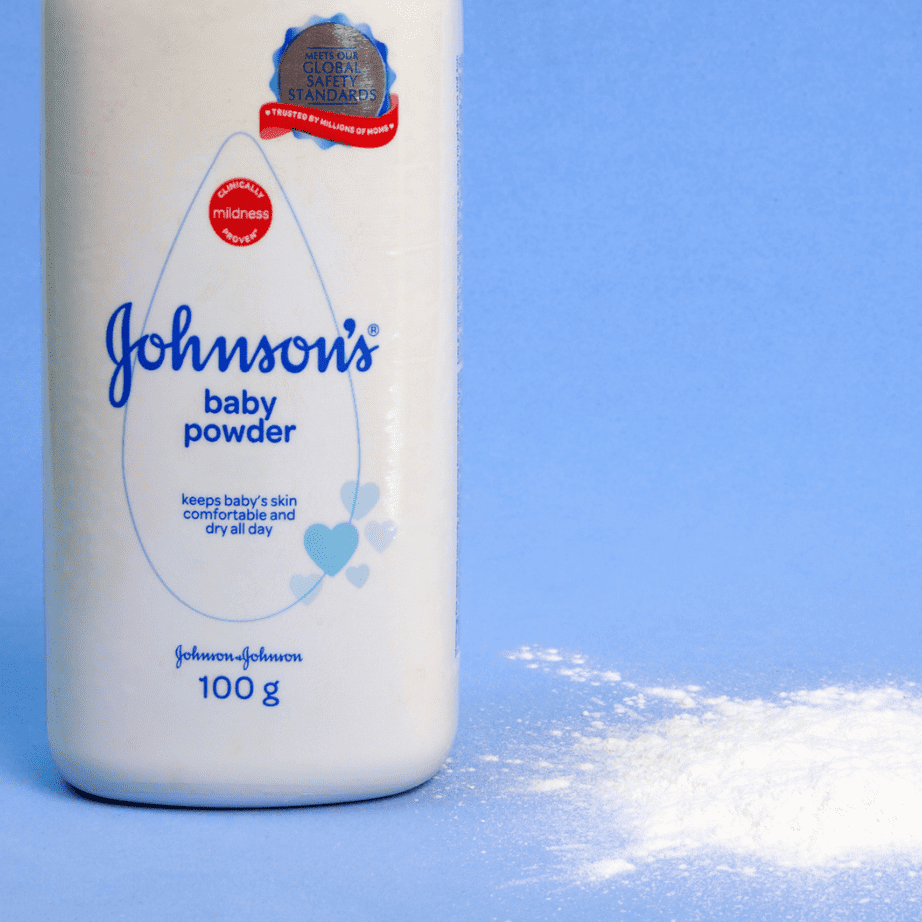Following through on what its worldwide vice president of litigation said during an October 2023 quarterly call (which we covered in an earlier blog post), Johnson & Johnson has announced plans to move one of its subsidiaries to Texas in preparation for a third bankruptcy case aimed at resolving tens of thousands of product liability talc lawsuits against the company.
A strategic effort to avoid liability
Over the past decade or so, J&J has faced many talc lawsuits alleging that the company’s talc powder products were tainted with asbestos or other carcinogens that caused consumers to develop mesothelioma or cancers from prolonged use of those products. In response to its rapidly expanding legal exposure and financial liability from talc litigation against it, J&J moved its talc product lines into newly formed corporate subsidiaries that exist solely to shield the rest of the company from this exposure and liability. These subsidiaries, which include LTL Management, provide this protection by offering balance sheets that J&J can move its talc exposure and liabilities onto.
Recently, J&J has twice tried to place LTL into Chapter 11 bankruptcy in the company’s home state of New Jersey. The process of corporations breaking off their liabilities into new subsidiaries and then forcing the subsidiaries to file for bankruptcy is known as the “Texas Two-Step.”
J&J sought to use the bankruptcy process to manage and resolve liabilities arising from the talc powder lawsuits , claiming that these tens of thousands of lawsuits, and the prospect of tens of thousands more, have severely affected the company’s stock price and jeopardized its financial health. Through a Chapter 11 bankruptcy, companies can place money into a trust that pays mass tort claimants according to the trust’s evaluation of claims, as opposed to claimants obtaining financial recovery through a jury. Even if a bankruptcy petition is ultimately dismissed, the automatic bankruptcy stay can delay mass tort litigation for years.
Gain a Competitive Advantage by Hiring Verus to Manage your Roundup Litigation Needs
J&J’s two bankruptcy petitions filed in New Jersey federal court were both dismissed. But according to news reports, in late 2023, J&J filed a request with the Texas secretary of state’s office to move LTL to Austin, Texas, and rename the subsidiary ahead of a Chapter 11 bankruptcy filing in Texas.
J&J appears to be planning to take advantage of Texas law, which is more favorable to companies seeking to assign mass tort liabilities to subsidiaries that subsequently file for bankruptcy.
Will Texas be a friendlier venue than New Jersey for J&J?
Although many legal industry watchers expect J&J’s third attempt at a Chapter 11 bankruptcy to end like its first two, it remains to be seen whether moving to the seemingly more business-friendly environment of Texas will allow the company to successfully shed its talc litigation liability in bankruptcy. After all, one reason J&J’s attempted legal maneuvers are called the “Texas Two-Step” is because Texas law is more permissive than other states of divisive mergers—also known as “reverse mergers”—the legal act that is at the center of J&J’s maneuvers.
Although relatively few corporations have used bankruptcy to resolve mass tort liability, if J&J is successful at managing its talc litigation liability by moving LTL to Texas to file for bankruptcy after its unsuccessful previous attempts, other companies facing mass tort litigation may follow suit. The legal industry might see other defendants in mass tort cases involving pesticides/herbicides, hair care products, or medical devices/pharmaceuticals, pursue a similar strategy.
If J&J resolves its talc litigation through the bankruptcy process, we could also see other companies facing massive litigation beyond mass torts resort to bankruptcy to shed that legal exposure and financial liability, such as consumer protection litigation, securities class action litigation, or stockholder litigation.
J&J’s potential success in bankruptcy court in Texas could also motivate opponents of corporations that use the bankruptcy process to shed mass tort liabilities to seek legislation restricting or banning the process. Many legislators in state legislatures and Congress have publicly derided the practice of using bankruptcies to eliminate mass tort liabilities. Some have called for, or proposed, legislation that would prevent corporations from filing for bankruptcy to deal with mass tort litigation when those corporations remain solvent or have the financial resources to compensate injured victims.
Despite the uncertainty the talc litigation against it has created, J&J remains a profitable Fortune 50 company. It can continue to invest in retaining legal counsel to advise it on how to execute a new Texas Two-Step or a similar maneuver to avoid legal exposure and financial liability for its talc products.
Though it has been unsuccessful in the past, the third time may be the charm for J&J as it attempts to pull off a Texas Two-Step in the state where the maneuver was born.
====
Verus offers exceptional litigation support services for mass tort law firms nationwide, underpinned by the seamless integration of cutting-edge technology, our extensive industry expertise, and data-driven insights. Whether navigating complex legal issues or providing strategic guidance, Verus is your trusted partner for all your litigation support needs.
Interested in learning how Verus can assist your mass tort law firm with managing Talc litigation cases? Contact us online, by email at info@verusllc.com or by phone at 888.681.1129 to arrange an initial consultation.
Read our latest blog post here.







